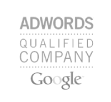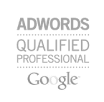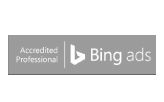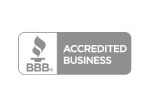Navigating the competitive landscape of legal services demands a sharp Pay-Per-Click strategy specifically tailored for law firms. From keyword selection to optimizing your bidding strategy, learn how to leverage targeted digital marketing to elevate your law firm's online presence.
The Fundamentals Of PPC For Lawyers
At its core, PPC involves crafting ads that resonate with potential clients, bidding on relevant keywords that prospective clients might use to find legal services, and carefully setting budgets to optimize spend.
Successful PPC campaigns start with meticulous keyword research—identifying terms that are highly relevant yet not overly competitive. From there, creating compelling ads is essential. These ads should clearly convey the benefits of your legal services and feature strong calls to action.
Finally, setting and managing your PPC budget involves understanding the cost-per-click of your chosen keywords and adjusting bids to maximize return on investment. By mastering these elements, law firms can significantly enhance their online presence and client acquisition efforts.
The Best PPC Strategy For Lawyers
1. Target the right keywords
A solid keyword strategy is the foundation of any successful PPC campaign for lawyers. To maximize the impact of your PPC advertising efforts, begin with a thorough analysis of keywords that align closely with your legal services. Focus on specific terms to start then expand to broader terms as you see results. Balance high-traffic, relevant keywords with long-tail phrases that potential clients might use during critical moments of need. For example, terms like “personal injury lawyer” can be complemented with more specific phrases such as “bike accident attorney in Chicago.”
Utilize keyword research for search ads using tools such as Google Keyword Planner to identify relevant keywords and terms with a strong balance of search volume and competitiveness. Additionally, incorporate negative keywords to filter out irrelevant traffic and enhance campaign focus. Incorporating geographic modifiers can significantly enhance relevance and reduce cost-per-click (CPC) by targeting local clients more effectively.
Moreover, consider the intent behind the relevant keywords. Transactional keywords, indicating a readiness to engage a lawyer, can be more valuable than informational ones. Continuously refine your keyword list by analyzing performance data to remove underperforming keywords and add new opportunities based on search trends.
2. Ad Copy and Targeting

Crafting effective ad copy and precise targeting forms the backbone of a powerful PPC strategy for lawyers. Your ad copy must resonate with your target audience, emphasizing the unique benefits your legal services offer. Start by identifying the core needs and concerns of your potential clients. For instance, if specializing in family law, your PPC ads should convey empathy and assurance, emphasizing confidentiality and expert support.
Use clear, action-oriented language with strong calls to action, such as "Schedule Your Free Consultation Today" or "Expert Legal Advice—Call Now." Every element of the ad, from the headline to the description, should align with the keywords you are bidding on to ensure relevance and improve your Quality Score in Google Ads, thus reducing the cost per click.
Targeting is equally crucial. Define your audience by geographic location, device type, and even by time of day to optimize visibility and engagement. For example, targeting mobile users during commuting hours could increase visibility among professionals seeking legal advice. Consistently evaluate and fine-tune your targeting settings according to campaign performance to optimize your reach and ROI. By aligning targeted ad copy with well-defined audience segments, law firms can effectively attract more relevant inquiries, enhancing both campaign efficiency and client conversion rates.
3. Create And Optimize Landing Pages

Creating and optimizing landing pages is critical for a successful PPC strategy for lawyers. These pages are where potential clients land after clicking your PPC ads, so they must be designed to convert visitors into leads. To start, ensure your landing page directly relates to the ad copy to maintain consistency and relevance. This increases the likelihood that visitors will engage with the content.
The layout of your landing page should be straightforward, featuring a clear, compelling headline that reinforces the ad's message. Include a concise form to capture leads, asking only for essential information to maximize completion rates. Utilize high-quality, pertinent images that align with your legal services and bolster trust.
Load time is also crucial; a fast-loading page enhances user experience and aids in retaining the visitor's attention. Optimize for mobile devices, considering that many users will access your page via their smartphones.
Lastly, incorporate explicit calls-to-action (CTAs) that direct visitors toward the intended action, whether it’s booking a consultation or downloading a legal guide. Regularly testing and tweaking your landing page based on analytics will help refine your approach and improve conversion rates, making your PPC efforts more effective and efficient.
4. Quality Score Improvement
Improving your Google Ads quality score is pivotal for optimizing PPC advertising campaigns for lawyers, as it directly influences both the cost per click (CPC) and the effectiveness of your PPC ads. The quality score evaluates the relevance and quality of your keywords, ad copy click-through rates, and landing pages. Higher scores lead to lower costs and improved ad positions in search engine results pages.
To boost your quality score, begin by fine-tuning your keywords. Focus on relevance, choosing keywords closely aligned with the services you offer. Strategically incorporate these keywords into your ad copy, ensuring they align with the search intent of your potential clients.
Next, optimize your ad copy. It should be clear, engaging, and directly related to the keywords. Ensure that your ads address the user’s specific needs and include a strong call to action to improve click-through rates (CTRs), a critical component of Quality Score. The higher your CTR, the lower your cost per click will be.
Landing page optimization is also crucial. Ensure that your landing pages provide a seamless user experience, relevant content, and quick loading times. They must be directly relevant to the ad’s promise and provide a cohesive journey from ad to action.
Review and adjust these elements regularly based on performance metrics. This continuous improvement cycle will help maintain high-quality scores, reduce costs, and enhance the overall efficiency of your PPC ad campaigns.
5. Performance Tracking and Optimization
Performance tracking and optimization are crucial components of a successful PPC strategy for lawyers, enabling the fine-tuning of a law firm's PPC campaigns for maximum effectiveness and ROI. This process begins with the robust implementation of conversion tracking tools such as Google Analytics event tracking and Google Ads conversion tracking. These tools provide vital data on how users interact with your PPC ads, from the initial click-through to conversion. Tracking metrics such as click-through rates (CTR), cost per click (CPC), conversion rates, and cost per acquisition (CPA) offer a quantitative foundation for assessing the performance of each ad and keyword.
A systematic approach to optimization involves frequent analysis and adjustments. Analyze performance data to identify trends and patterns, such as which ad creatives generate the most conversions or which keywords are most cost-effective. This insight allows you to refine your bidding strategies—potentially shifting focus towards more profitable keywords or adjusting bids to maximize visibility during peak times.
Furthermore, A/B testing is an effective method for comparing different elements of law firm PPC campaigns. Experimenting with different ad copy variations, landing pages, and demographic targeting allows you to identify what resonates most effectively with your target audience. Each test should aim to answer specific questions about user preferences and behaviors, guiding you toward more informed adjustments that enhance engagement and conversions. Just don't overtest. Too many tests will cause confusion and overcomplicate things. Keep things simple!
Lastly, it’s vital to stay proactive with your campaigns. Regular updates based on the latest data ensure that your strategy remains aligned with changing user behaviors and market conditions. This ongoing process of monitoring, testing, and refining helps maintain high quality Scores, optimize ad spend, and ultimately drive better results for your law firm’s PPC efforts. By diligently tracking and continually optimizing, you can ensure that your PPC campaigns are not only operational but also optimized for peak performance.
6. Managing Ad Spend
Effective management of Google ad campaign spend is fundamental to maximizing the returns from a PPC campaign for lawyers. This process begins with establishing a clear budget based on your firm’s marketing goals and the competitive landscape of the legal services you offer. It’s important to decide how much you are willing to pay for each click, which will largely depend on the potential value of a client and the cost-per-click (CPC) of keywords within your specialty.
To maximize your ad spend efficiency, consistently review and adjust your bids. Utilize automated bidding strategies like CPC or cost-per-acquisition (CPA) bidding, which can help maximize returns while keeping spending in check. Analyze performance data to identify which keywords and PPC ads deliver the best results and allocate more budget to those areas.
Keep a close eye on your Quality Score as well; a higher score can reduce your CPC and extend your budget further. Also, consider implementing dayparting strategies to run PPC ads during optimal times when potential clients are most likely to search for your services, thus improving the likelihood of conversion.
Lastly, continuous monitoring and tweaking of your campaign settings are essential. This includes pausing underperforming keywords, refining ad copy, and adjusting targeting settings to ensure every dollar spent is contributing to meeting your firm's objectives. By managing your ad spend wisely and making data-driven decisions, you can significantly enhance the efficiency and effectiveness of your PPC campaigns.
8. Implement Retargeting Strategies
Retargeting is a highly effective component of PPC for lawyers. It's designed to reconnect with users who have previously engaged with your website but did not convert. This approach involves placing cookies on the user's device during their site visit, enabling you to retarget them with a focused PPC ad campaign across different platforms they visit afterward.
However, it's important for law firms to understand that retargeting not only reminds past visitors of their services but can also significantly enhance the persuasiveness of their marketing efforts by keeping their brand top of mind.
To implement an effective retargeting strategy, begin with precise audience segmentation. Classify users based on their interaction level with your website. For example, you could create one segment for visitors who viewed your personal injury page and another for those who completed a contact form but didn’t submit it. Tailor your PPC ads to each segment, reinforcing the services they showed interest in, or offering additional information to guide them back. This requires using a tag or pixel placed on various pages of your website to collect data about visitor behavior.
Further, video retargeting can be especially powerful for law firms, given that video content can be highly engaging and persuasive. These can be short clips that address common legal issues, provide helpful advice, or showcase client testimonials, which can strengthen trust and credibility.
Another important aspect is frequency capping, which limits how often the same individual sees your ad. This prevents ad fatigue and maintains a balance between keeping your firm visible and not overwhelming potential clients.
Finally, integrating retargeting into your overall digital marketing strategy is essential. This includes aligning it with your SEO and content marketing efforts to ensure a cohesive and unified message across all channels. Analyzing the data from these campaigns will offer insights into the most effective strategies and areas for improvement.
7. Integration with Other Channels

Integrating PPC (Pay-Per-Click) with other marketing channels significantly enhances the effectiveness of a law firm's overall digital strategy. While PPC advertising excels at capturing immediate interest when potential clients are actively searching for legal services, it should not operate in isolation.
Integrating PPC with SEO (Search Engine Optimization) ensures that your firm is visible across both paid and organic search results in search engines, capturing a broader audience. SEO helps to build long-term visibility and trust, while PPC offers a quick conversion route for immediate needs.
Social media platforms also play a crucial role. Sharing content that complements your PPC campaigns can boost engagement and drive traffic to your site. Platforms like LinkedIn are especially valuable for law firms, allowing for targeted content that can reach specific professional groups.
Email marketing can be synchronized with PPC to follow up on leads generated by your ads. For instance, sending targeted emails to users who clicked on specific ads can keep your firm top of mind and encourage further interaction.
Finally, analyzing data across all these channels allows for more informed decisions, optimizing your advertising spend, and improving ROI. By combining these strategies, you create a cohesive marketing effort that capitalizes on the distinct strengths of each channel, ensuring your law firm stays competitive in a crowded market.
9. Set up phone call tracking
Setting up effective conversion tracking, including phone calls, is essential for any PPC strategy aimed at law firms. This process not only evaluates the effectiveness of your advertising efforts but also offers valuable insights into how potential clients interact with your Google ads.
First, start by setting up conversion tracking in Google Ads. This involves creating conversion actions that are tailored to the specific objectives of your campaign, such as form submissions or newsletter sign-ups. For phone calls, which are often a crucial conversion metric for law firms, you can use Google Ads' call tracking or a third-party tool like CallRail. This feature assigns a unique phone number to your Google ads and tracks when calls are made through this number, allowing you to directly attribute phone call conversions to specific PPC ads.
Additionally, think about integrating your Google Ads account with Google Analytics for more in-depth analysis. This allows you to see not just when conversions happen, but also the user behavior leading up to that conversion. You can track which pages visitors view before completing a conversion, providing insights into which parts of your website are performing well and which may need optimization.
For a more comprehensive approach, use third-party tools like CallRail or Invoca for more advanced call-tracking capabilities. These tools offer features such as keyword-level call tracking and call recording, helping to further refine your PPC strategy based on actual conversations.
Regularly reviewing and analyzing the data from these conversions helps to continuously refine your PPC campaigns, ensuring they remain cost-effective and aligned with your firm's marketing goals. This data-driven approach ensures that every dollar spent on PPC contributes to attracting new clients.
10. Monitor and Analyze The Data

Effective monitoring and analytics are crucial to the success of any PPC strategy, particularly for law firms where competition for keywords can be intense and the cost-per-click high. For lawyers, utilizing detailed analytics enables real-time campaign optimization, ensuring resources are allocated to the most effective strategies.
To begin, law firms should monitor fundamental metrics like impressions, clicks, conversion rates, and cost-per-conversion. These data points provide an immediate understanding of how well an ad is performing and whether it is meeting the firm's goals. Advanced tracking setups can further reveal the path users take from clicking an ad to completing a conversion, highlighting potential drop-off points or opportunities for optimization.
Beyond tracking metrics, analyzing user behavior on landing pages can yield insights into what visitors are actually looking for, and whether the content on the page meets those needs. Tools like Google Analytics offer features like behavior flow and bounce rate analysis, which can help understand and improve user engagement.
Additionally, integrating PPC data with other tools like CRM software can provide a more comprehensive view of how PPC leads move through the sales funnel, from initial contact to becoming a client. This integration enables law firms to attribute revenue to specific campaigns and adjust bidding strategies based on ROI, rather than just click metrics.
Ultimately, regular review and adjustment based on these analytics will enable law firms to refine their PPC strategies continuously, leading to better allocation of ad spend, improved targeting, and increased return on investment.
11. Compliance and Legal Considerations

Navigating compliance and legal considerations is crucial for law firms implementing a PPC strategy. This ensures not only adherence to advertising regulations but also safeguards the firm's integrity and public trust. Each advertisement, whether digital or print, must comply with the strict guidelines set forth by state bar associations and national advertising standards. These guidelines generally prohibit misleading claims, guarantee specific outcomes, or suggest unjustified expertise.
For digital campaigns, it is particularly important to comply with platforms' policies, such as Google Ads' policies on professional services which include stipulations about misrepresentation and relevance. Moreover, law firms must be vigilant about privacy and data protection laws when collecting data through PPC campaigns. Ensuring that all data collection methods—such as forms and call tracking systems—are secure and transparent about the use and storage of data is essential. This is crucial to adhere to regulations such as the General Data Protection Regulation (GDPR) and the California Consumer Privacy Act (CCPA), which oversee data privacy.
Regular training for marketing teams or hired marketing agencies on these compliance issues is advisable to prevent inadvertent violations that could lead to severe penalties. Keeping abreast of changes in advertising laws and platform guidelines is also crucial as these can frequently change and impact how law firms are allowed to market their services.







